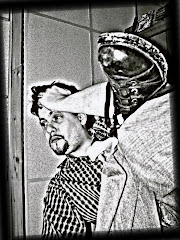“Let not your heart be troubled, nor let it be fearful.”
For many months I have been in physical pain and anxious about the uncertainty of my prognosis.
My dear son has shared in my sufferings. I look at his face and I grieve that I do not have the answers to his questions.
This morning, the Lord led me to a scripture in John 14: 21. “Let not your heart be troubled, nor let it be fearful.” I continued reading. I started from the beginning of the chapter.
The following is an excerpt from Matthew Henry’s commentary on John 14.
A general caution which Christ gives to his disciples against trouble of heart Let not your heart be troubled. They now began to be troubled, were entering into this temptation.
Christ took notice of it. Perhaps it was apparent in their looks; it was said (ch. 13:22), They looked one upon another with anxiety and concern, and Christ looked upon them all, and observed it; at least, it was intelligible to the Lord Jesus, who is acquainted with all our secret undiscovered sorrows, with the wound that bleeds inwardly; he knows not only how we are afflicted, but how we stand affected under our afflictions, and how near they lie to our hearts; he takes cognizance of all the trouble which his people are at any time in danger of being overwhelmed with; he knows our souls in adversity. Many things concurred to trouble the disciples now.
Christ had just told them of the unkindness he should receive from some of them, and this troubled them all. Peter, no doubt, looked very sorrowful upon what Christ said to him, and all the rest were sorry for him and for themselves too, not knowing whose turn it should be to be told next of some ill thing or other they should do. As to this, Christ comforts them; though a godly jealousy over ourselves is of great use to keep us humble and watchful, yet it must not prevail to the disquieting of our spirits and the damping of our holy joy.
He had just told them of his own departure from them, that he should not only go away, but go away in a cloud of sufferings. They must shortly hear him loaded with reproaches, and these will be as a sword in their bones; they must see him barbarously abused and put to death, and this also will be a sword piercing through their own souls, for they had loved him, and chosen him, and left all to follow him. When we now look upon Christ pierced, we cannot but mourn and be in bitterness, though we see the glorious issue and fruit of it; much more grievous must the sight be to them, who could then look no further.
Let not your heart be troubled.
Upon the word troubled, Be not so troubled as to be put into a hurry and confusion, like the troubled sea when it cannot rest.
Upon the word heart: "Though the nation and city be troubled, though your little family and flock be troubled, yet let not your heart be troubled. Keep possession of your own souls when you can keep possession of nothing else.’’
The heart is the main fort; whatever you do, keep trouble from this, keep this with all diligence. The spirit must sustain the infirmity, therefore, see that this be not wounded.
The remedy he prescribes against this trouble of mind, which he saw ready to prevail over them; in general, believe. "Believe in God, and his perfections and providence, believe also in me, and my mediation. Build with confidence upon the great acknowledged principles of natural religion: that there is a God, that he is most holy, wise, powerful, and good; that he is the governor of the world, and has the sovereign disposal of all events…
Here is a particular direction to act faith upon the promise of eternal life, v. 2, 3. He had directed them to trust to God, and to trust in him; but what must they trust God and Christ for? Trust them for a happiness to come when this body and this world shall be no more, and for a happiness to last as long as the immortal soul and the eternal world shall last.
Believe and consider that really there is such a happiness: In my Father’s house there are many mansions; if it were not so, I would have told you, v. 2.
See under what notion the happiness of heaven is here represented: as mansions, many mansions in Christ’s Father’s house. Heaven is a house, not a tent or tabernacle; it is a house not made with hands, eternal in the heavens. It is a Father’s house: my Father’s house; and his Father is our Father, to whom he was now ascending; so that in right of their elder brother all true believers shall be welcome to that happiness as to their home. It is his house who is King of kings and Lord of lords, dwells in light, and inhabits eternity.
Here we are as in an inn; in heaven we shall gain a settlement. The disciples had quitted their houses to attend Christ, who had not where to lay his head, but the mansions in heaven will make them amends. There are many mansions, for there are many to be brought to glory, and Christ exactly knows their number, nor will be straitened for room by the coming of more company than he expects. He had told Peter that he should follow him (ch. 13:36), but let not the rest be discouraged, in heaven there are mansions for them all.
See what assurance we have of the reality of the happiness itself, and the sincerity of the proposal of it to us: "If it were not so, I would have told you. If you had deceived yourselves, when you quitted your livelihoods, and ventured your lives for me, in prospect of a happiness future and unseen, I would soon have undeceived you.’’ The assurance is built, upon the veracity of his word. "If there were not such a happiness, valuable and attainable, I would not have told you that there was.’’
The belief of Christ’s second coming, of which he has given us the assurance, is an excellent preservative against trouble of heart, Phil. 4:5; James 5:8. That he will come again to receive all his faithful followers to himself. He sends for them privately at death, and gathers them one by one; but they are to make their public entry in solemn state all together at the last day, and then Christ himself will come to receive them, to conduct them in the abundance of his grace, and to welcome them in the abundance of his love. The coming of Christ is in order to our gathering together unto him, 2 Th. 2:1
If he has prepared the place for us, he will prepare us for it, and in due time put us in possession of it. As the resurrection of Christ is the assurance of our resurrection, so his ascension, victory, and glory, are an assurance of ours.
"If I go and prepare a place for you, if this be the errand of my journey, you may be sure, when every thing is ready, I will come again, and receive you to myself, so that you shall follow me hereafter, that where I am there you may be also.’’
















No comments:
Post a Comment